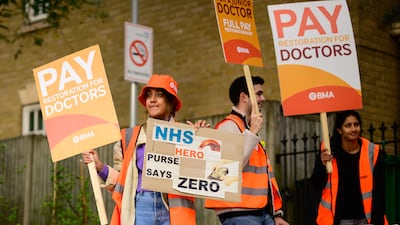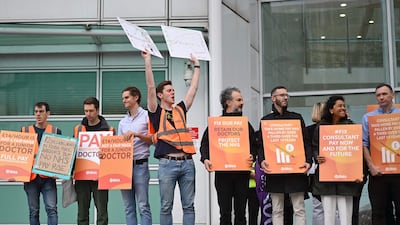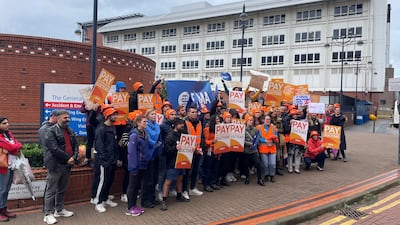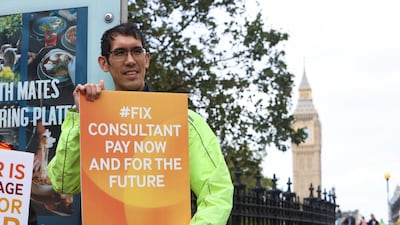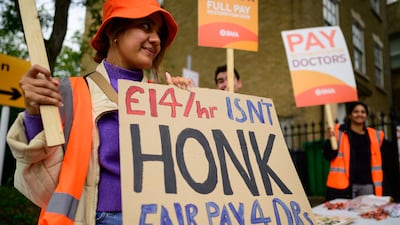National Health Service consultants and junior doctors are holding their first joint strike, reducing staff to Christmas Day levels.
British Medical Association members are walking out at NHS hospitals across England from September 19 to 20 in what has been described as an “awful scenario” by a health leader.
Hospitals have put in place Christmas Day-style rotas, meaning emergencies are prioritised but most routine work needs to be stopped.
The strike is said to pose the “biggest challenge” yet to NHS trusts up and down the country, forcing thousands of operations and appointments to be rescheduled.
As well as being on strike on Wednesday, junior doctors will continue to strike on Thursday and Friday this week. Further joint strikes by consultants and junior doctors are planned for October 2, 3 and 4.
NHS England said that the collective effect of the strikes “cannot be overestimated”.
“The NHS is set to experience the equivalent of five 'Christmas Days' in the next three weeks, where many routine services and appointments may not be delivered,” said NHS England's national medical director Prof Sir Stephen Powis.
“While colleagues are working hard to ensure we keep patients safe and prioritise emergency and critical care, the collective impact of this on patients and staff cannot be overestimated.
“The level of ongoing disruption to services caused by many thousands of rescheduled appointments is an enormous challenge, and we're very grateful to the public for using the NHS wisely during this unprecedented period.”
Matthew Taylor, chief executive of the NHS Confederation, which represents NHS organisations, said consultants and junior doctors walking out together is “the awful scenario health leaders have long feared”.
“Leaders will have pulled every lever available to them to mitigate the impact of this strike, but it is inevitable that patient safety is compromised, and we believe that the level of risk is the highest we've seen for a long time.
“We suspect that, despite our members preparing thoroughly in advance, we may see more than 100,000 operations and appointments cancelled this time around, taking the total to well over a million.
“It's estimated that the industrial action we've seen so far has cost over £1 billion; the cost of these latest strikes and those planned for October will likely cancel out or more the additional money promised to the system by the government last week.”
Mr Taylor added “this is a dire situation” that “won't be meaningfully solved” by the government's plan to bring in legal minimum service levels during strikes.
“We need to see all sides of this dispute get back round the table, and find a solution, not least for the sake of patients,” he said.
“Same-day strikes by consultants and junior doctors pose the biggest challenge yet for NHS services,” Miriam Deakin, director of policy and strategy at NHS Providers, which represents NHS managers, said.
“Patient safety is the top priority. Today's joint walkout will affect many more groups of patients who haven't been disrupted by previous strikes.
“Trusts are doing everything they can to minimise disruption but that's getting harder and more expensive to do with every strike.
“Trust leaders and their teams want to focus all of their energy on seeing more patients more quickly and cutting waiting lists, a government priority, instead of having to spend too much time planning for and dealing with strikes.
“Trust leaders understand why so many colleagues are striking but the longer this goes on the worse the long-term effects on patients and staff relations will be.
“The government and unions must sit down and find a way to prevent more walkouts.”
Conciliation service Acas said it stands “ready to help” end the disputes.
Marina Glasgow, Acas chief conciliator, said: “We have a team of experts who are well prepared and ready to help with the consultants and junior doctors' disputes.
“Our collective conciliation service is impartial, free and independent. It is also voluntary, which means we can only hold formal conciliation talks when all the parties in dispute agree that the time is right for conciliation.”
